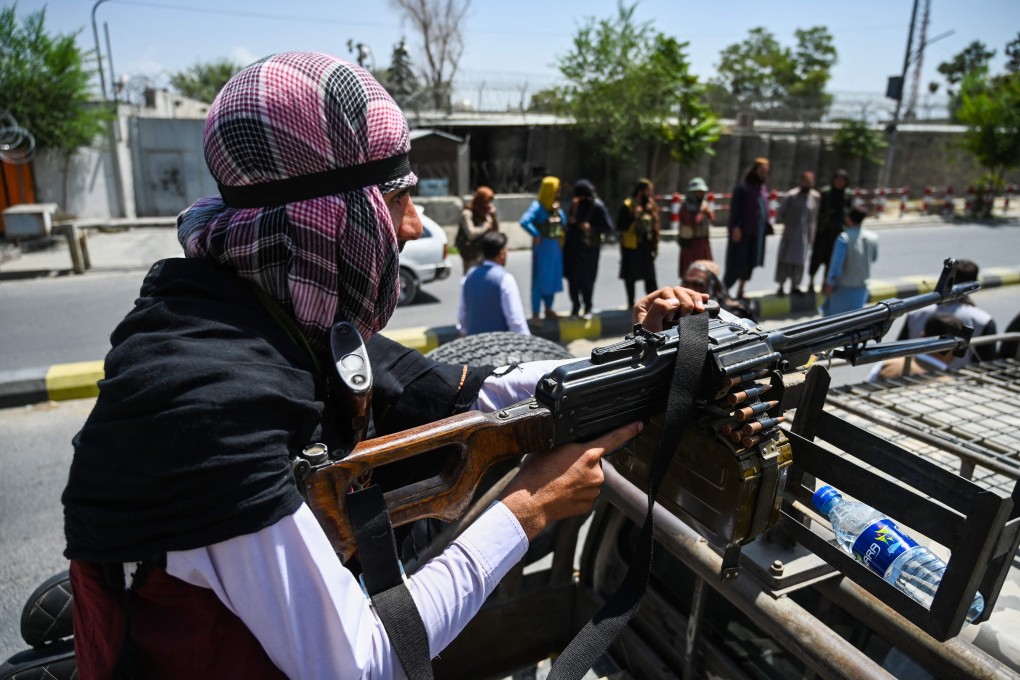China ‘willing’ to work with US on Afghanistan, but calls for easing of other pressures
- In a flurry of diplomatic calls, Washington’s Secretary of State Antony Blinken secured Beijing’s support for cooperation, but not at any price
- Blinken has also spoken to Russia’s foreign minister and discussions have also been held between Moscow and Beijing

In a flurry of diplomatic phone calls, Blinken also spoke to Lavrov, as well as Nato’s secretary general Jens Stoltenberg, the European Union’s high representative Josep Borrell and foreign ministers from Pakistan, Britain and Turkey, in the aftermath of the chaotic fall of the Afghan government as the Taliban took over Kabul and the presidential palace on Monday.
While the US State Department provided few details of the Wang-Blinken discussion, Chinese state news agency Xinhua said Beijing had called for Washington to “play a constructive role” and take part in the peaceful reconstruction of the war-torn country.
“China is willing to communicate and dialogue with the US to push for a soft landing of the Afghanistan problem, preventing new civil war or humanitarian disaster in the country, to avoid it from [becoming] a breeding ground and shelter for terrorism, and encouraging Afghanistan to set up an inclusive political framework in line with the Afghanistan situation,” Wang said.

03:24
At least 7 people killed at Kabul airport as thousands of Afghans try to flee Taliban: US officials
In his remarks, Biden said it was wrong for US troops to bear the cost in Afghanistan, and that one or several more years of a US military presence there would not have made a difference in mounting a resistance to the Taliban.